Pakistan fights Polio Virus, but Hoaxes Go Viral
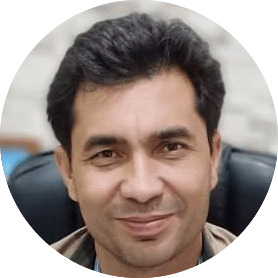
By Manzoor Ali
Staff Writer
12/7/2019
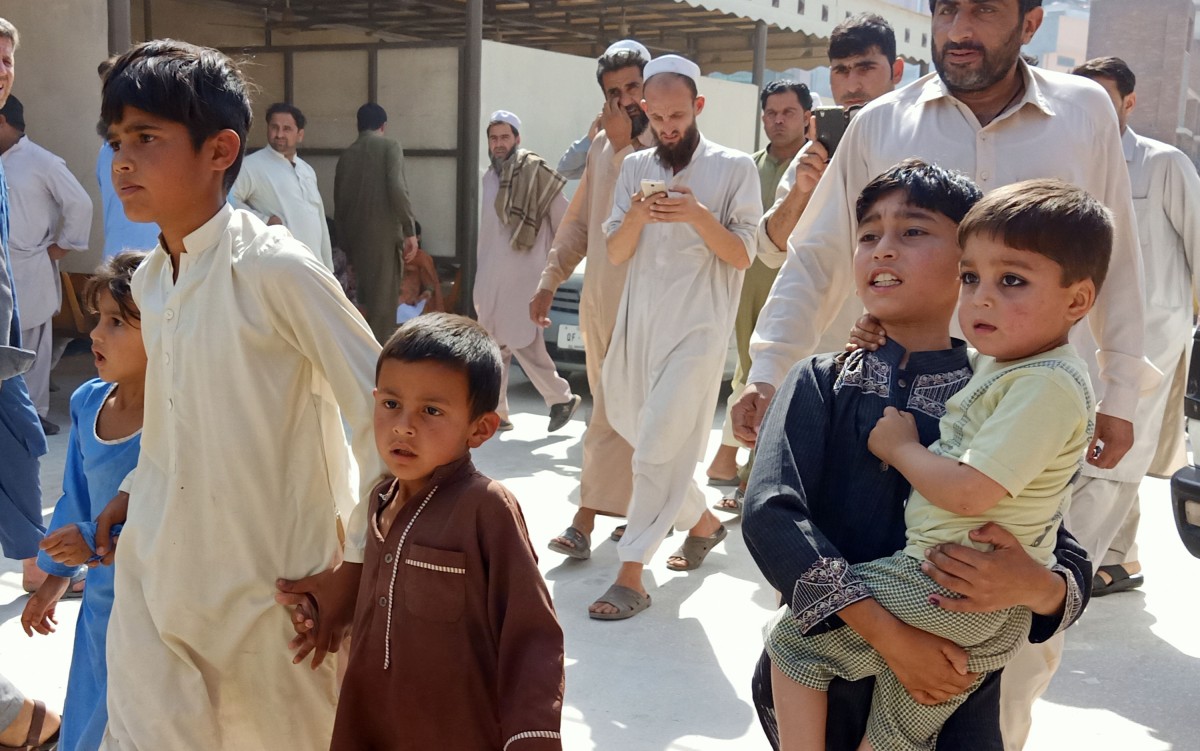
Children being rushed to hospitals in Peshawar following the polio hoax
On the morning of April 20, polio workers arrived at a private school in Mashokhel village on the outskirts of Peshawar. They entered a classroom and started inoculating school kids. Moments later some of those children experienced nausea, stomach cramps, and vomiting.
News of this spread through Mashokhel and nearby villages like wildfire. Unsubstantiated reports of several deaths due to vaccine reactions were widely shared on social media platforms including WhatsApp, Facebook, and Twitter, prompting thousands of panicked parents to rush their vaccinated children to city hospitals. By the evening, some 40,000 children had been sent to hospitals and the resultant commotion brought the city to a standstill.
Since this health scare, the number of parents refusing to vaccinate their kids against polio in the northwest of Pakistan has jumped from 35,000 a few months earlier to 1.6 million. It has significantly undermined three decades worth of work to eradicate the crippling disease. The number of polio cases reported in Pakistan has jumped to 41 this year from just eight in 2018. At least 33 of these 41 cases surfaced in the northwestern Khyber Pakhtunkhwa province.
Pakistan’s struggle against polio contributes to its image as an unpredictable and chaotic place. Rarely does something as innocuous as inoculations arouse such fear and revulsion. The slew of lies being peddled to discredit vaccines is diverse and have particular resonance in a society that still accords greater importance to the spoken word. Even a significant portion of the literate and urban population is heavily influenced by Western anti-Vaxxers. (A fake immunization drive a Pakistani doctor, Shakil Afridi, ran to obtain DNA samples to confirm Osama Bin Laden’s presence in Abbottabad in 2011 also didn’t help the polio campaign.)
Even a significant portion of the literate and urban population is heavily influenced by Western anti-Vaxxers.
An impoverished village of over 25,000 people, Mashokhel’s narrow streets are unpaved and there is no drainage or sewage system. Most of the village’s population either work as laborers or are engaged in subsistence farming. Poverty is writ large over the warrens connecting crumbling mud houses.
Daraul Qalam Model School Mashokhel, where the hoax originated, is one of the largest private schools in the village. Villagers could be seen collecting water at a solar pump installed by the school’s owner. The school’s yellow gate is closed after authorities sealed it following an investigation of the incident. I entered the building thorough another small door opening into the school’s tuck-shop. The school is completely deserted and its rooms are padlocked. I met the school’s owner, Waqif Khan, and principal, Kashif Khan, inside a dimly-lit second storey room. We sat on plastic mats on the floor.
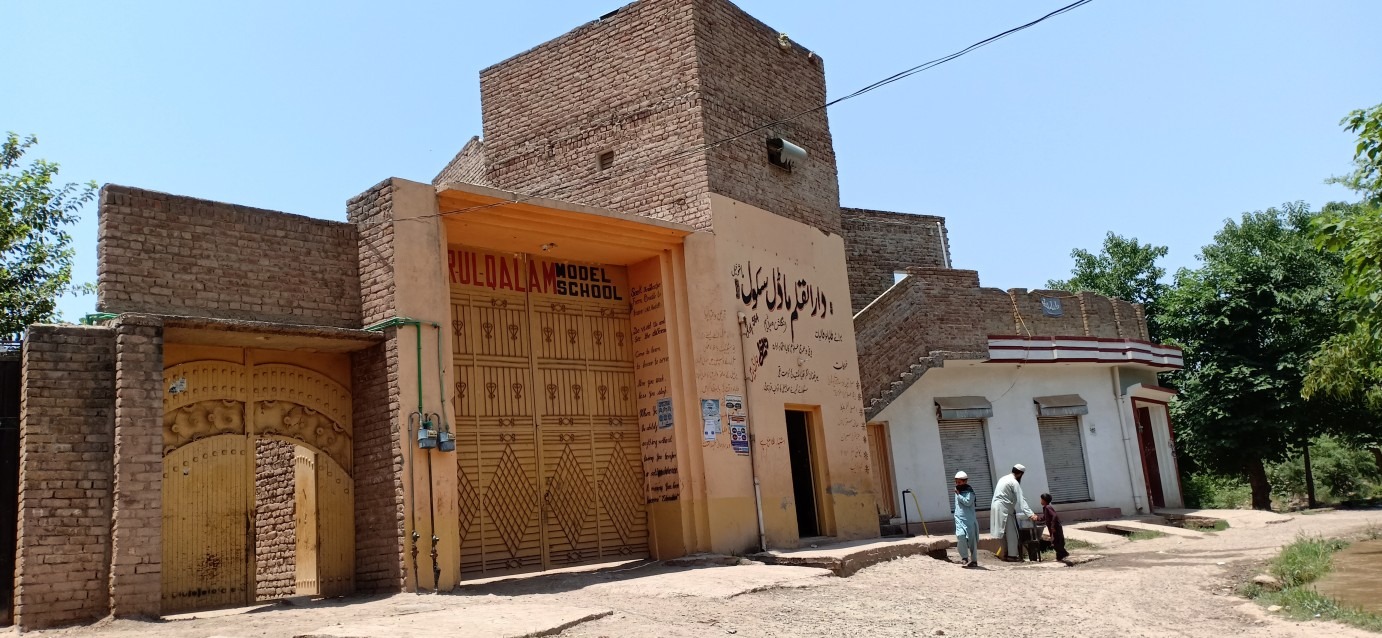
Daraul Qalam Model School Mashokhel
Kashif Khan, a bulky man with a receding hairline, is in his late thirties. Health officials say it was he who started the hoax, an accusation he denies flatly. “If we were refusing polio drops regularly, then why government did not arrest us all those years?” he asked bitterly.
In the school administration’s version of events, five polio workers arrived at the school on the fateful day and started vaccinating children without the school’s permission. Minutes later one of the children complained of stomach cramps and nausea, followed by another, and soon everyone in the class was saying the same. The principal rushed downstairs, put the children in a vehicle, and sent them to hospital.
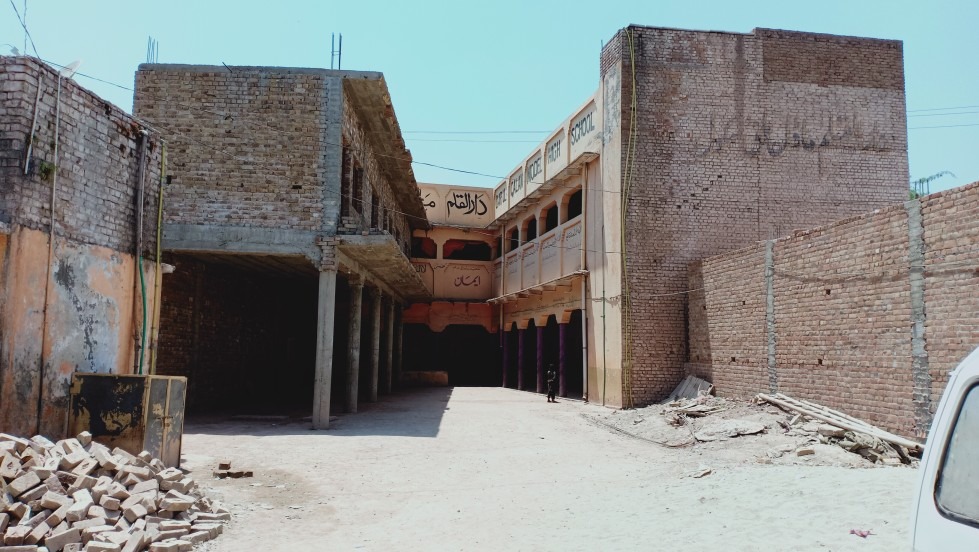
Inside the school
As news of this spread throughout the village, scores of villagers assembled outside the school. There were rumors that some children had died from the vaccine. Some of the locals rushed to the mosques to make announcements from the public address system, warning parents not to inoculate their children and to take vaccinated children to hospital immediately. This led to chaos, with people running through the streets, clutching their babies, crying and wailing. Sajjad Khan, a local taxi driver who made four trips from the village to the city hospital on that day described the scene as pandemonium. “I will never forget what happened on this day,” he said.
In the meantime the mob assembled outside the school set out for village hospitals through the meandering alleys. The crowd reached a hospital and started chanting slogans against the government. A guard and his brother who runs a shop next door managed to keep the mob at bay for hours. However, they were eventually overpowered and the mob entered the facility. They tore down its walls and gate and looted or torched everything inside including medicine, equipment, and books. The guard and his brother managed to escort the hospital staff from the back of the building and shepherded them to safety.
The mob looted or torched everything inside the hospital including medicine, equipment, and books.
Now the hospital lies in ruins. A mangled fan with a missing blade greets visitors. Burnt documents and broken vials and syringes litter the floor, and in another room is the charred remains of a refrigerator, apparently used to store medicine. Now sick villagers have to go to another facility, about an hour away. Locals are regretting the destruction of the facility.
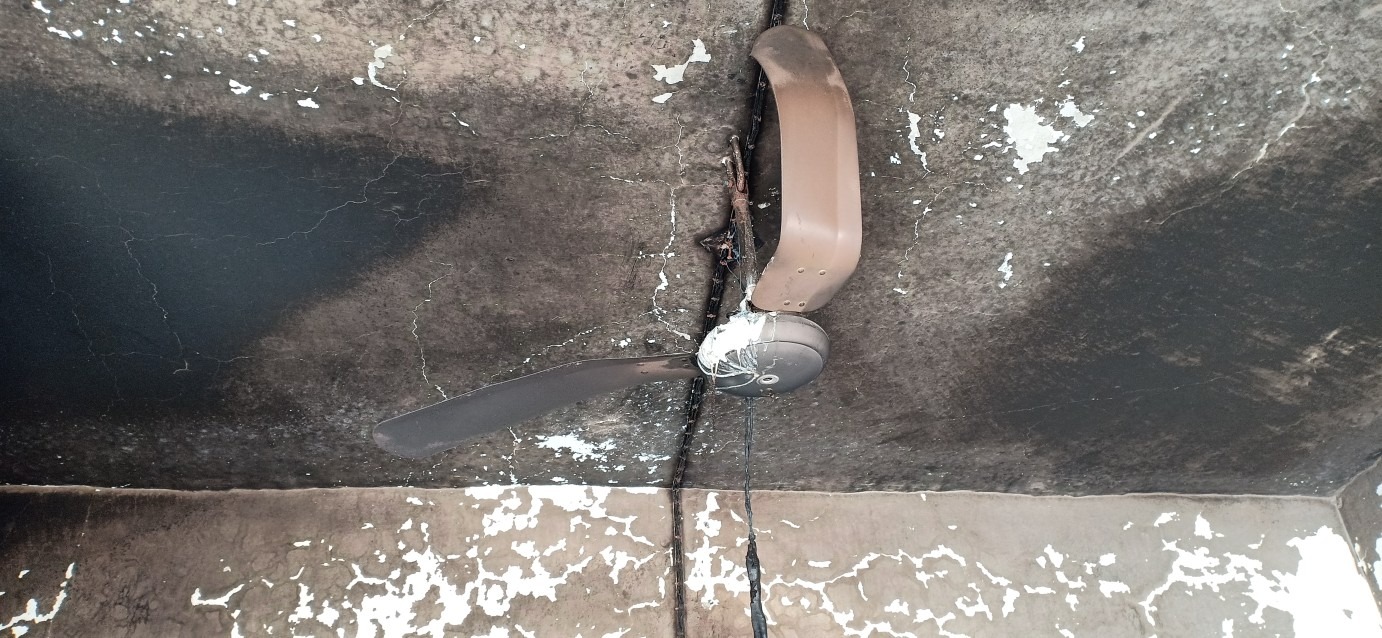
A government inquiry found that the reports went viral in a short span of time through social media. Within an hour between 10-11 am, the scare spread from Mashokhel to 11 other villages.
As dusk fell, all of the children were sent home in a stable condition except for a few who were kept on for observation at the insistence of their parents. The government report blames the administration of some schools, religious figures, and local leaders for the whole episode. It names at least eight schools, including Daraul Qalam, for not only threatening polio workers, but also instigating the mob to damage government property.
The report goes as far as declaring the hoax a pre-planned conspiracy. “The committee based on evidence, facts, circumstances, statements, and discussions made with the concerned staff is of the view that it was not a medical situation or emergency, rather it was pre-planned conspiracy against the national cause,” the report concluded. A senior health official also blamed the Darul Qalam school administration for hatching the conspiracy to derail the polio campaign. “We have intelligence reports confirming school owner and a few other anti-Vaxxers had a meeting a few days before where they decided to tell children to feign illness so that the campaign could be painted in negative light,” the official said. Even if the official claim is to be believed, perhaps the purpose of orchestrating the hoax was localized and even its planners didn’t anticipate how far it would go.
The report goes as far as declaring the hoax a pre-planned conspiracy.
In its recommendations, the report asked the government to take action against schools, online anti-vaccination propaganda, social media platforms, and mosque public address systems to prevent the spread of misinformation. The schools named in the report have been closed down, while the government also approached social media platforms to curb anti-Vax content. During this drive, YouTube also took down a video with a prominent anti-Vaxxer host. In addition to this, at least 20 people were arrested for playing a role in the mob violence in Mashokhel.
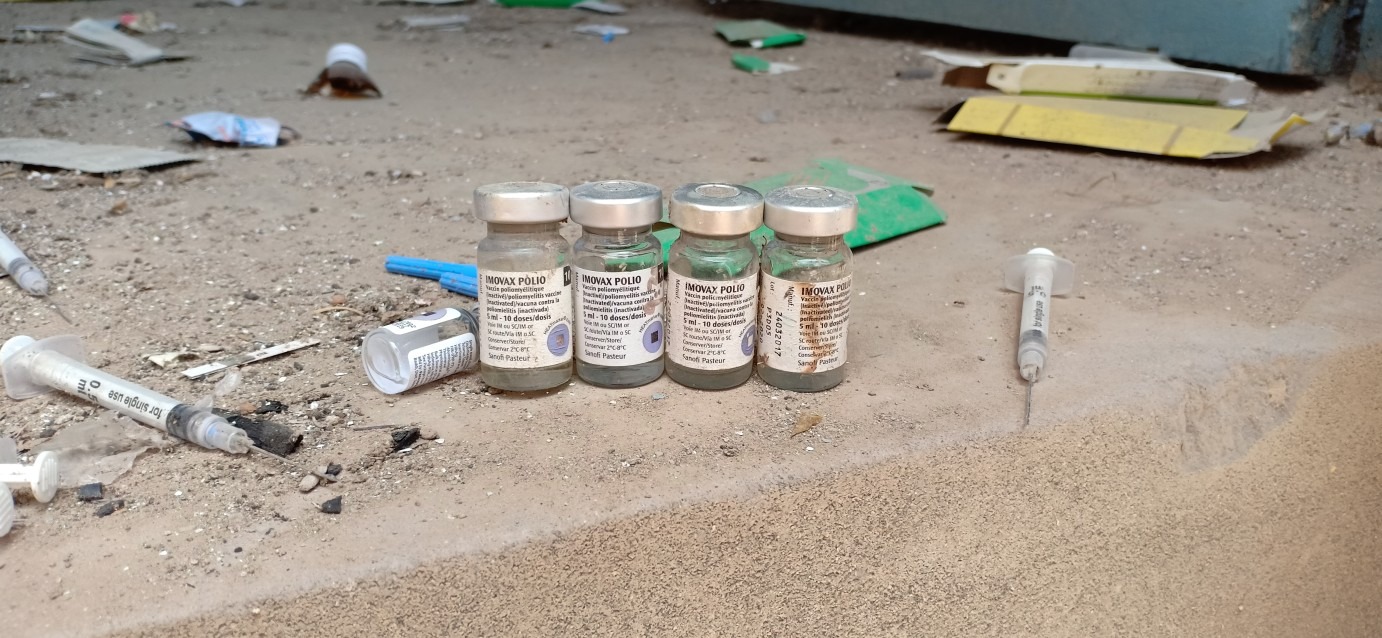
Polio vaccine vials and syringes litter the floor of the gutted hospital
To make matters worse, the money Pakistan is receiving from loans and donors to fight polio is due to run out in 2023 and if the disease can’t be eliminated by then, the hard-pressed country will have to find a new source of funds for its campaign.
For the past 30 years, polio has been Pakistan’s biggest public health challenge. After coming so close to victory against this disease, the Mashokhel incident was a massive setback for the country. Its health authorities must respond to this by stepping out of their comfort zones and realizing that battling viral hoaxes is an important part of its fight against the virus.
